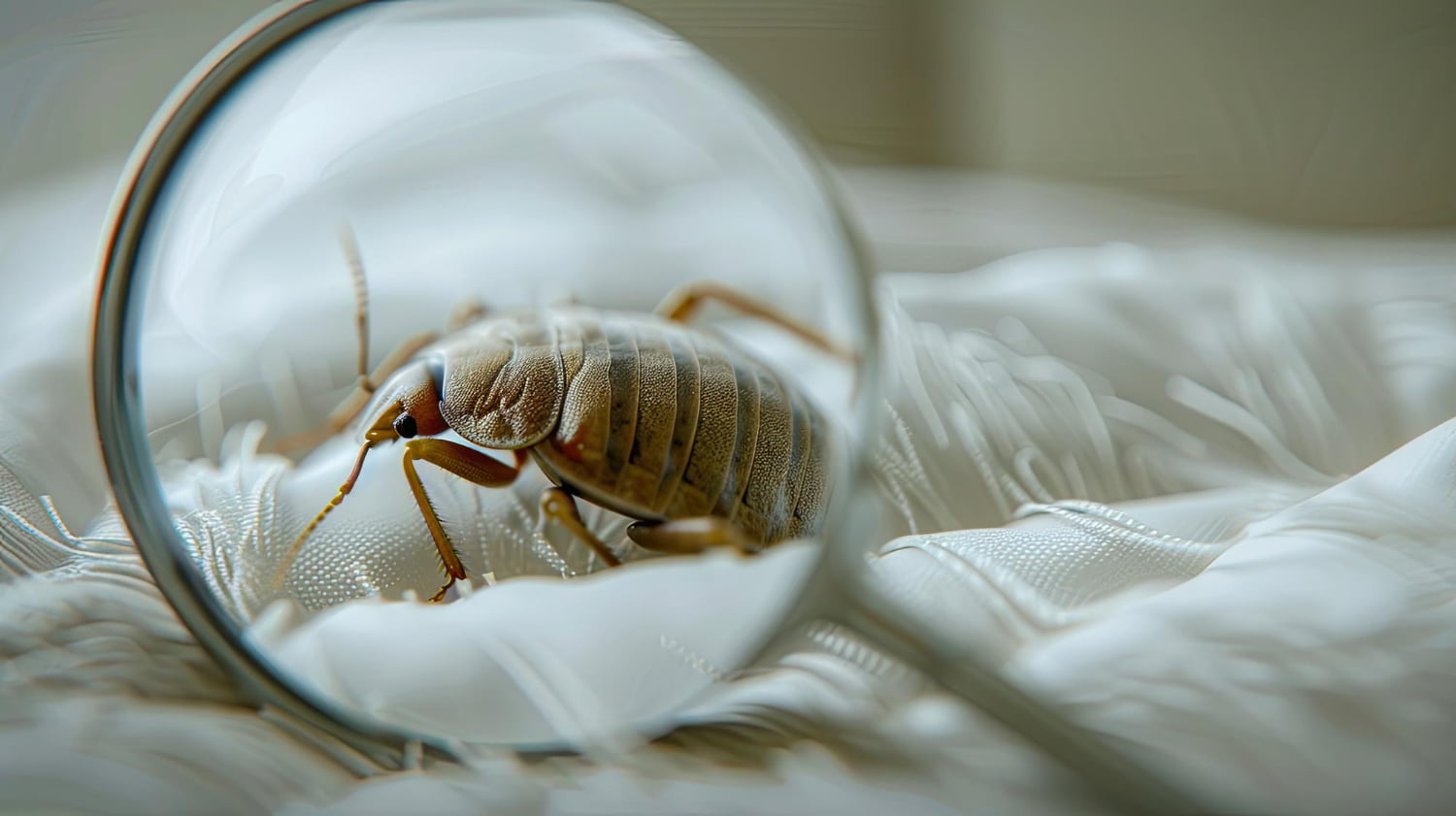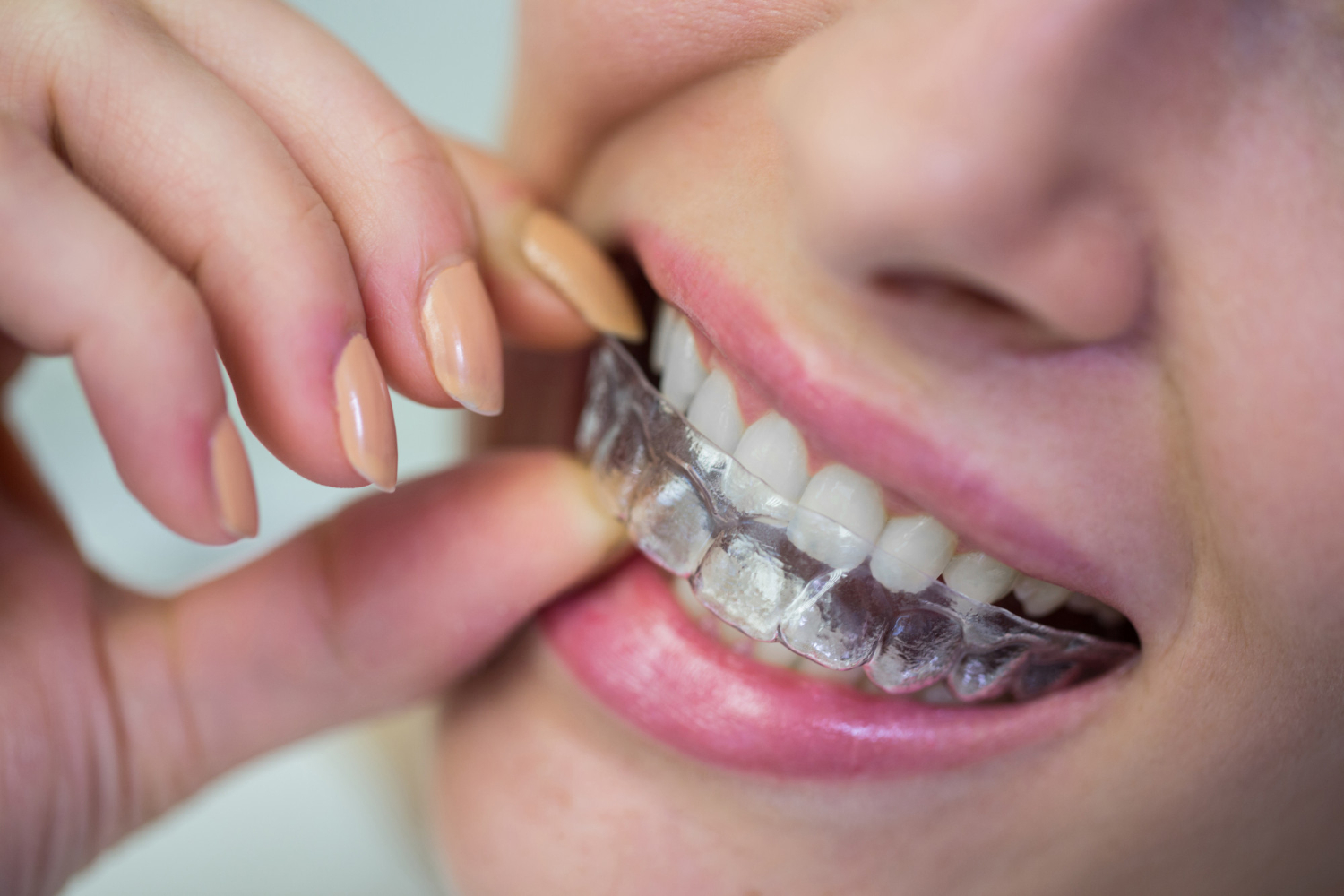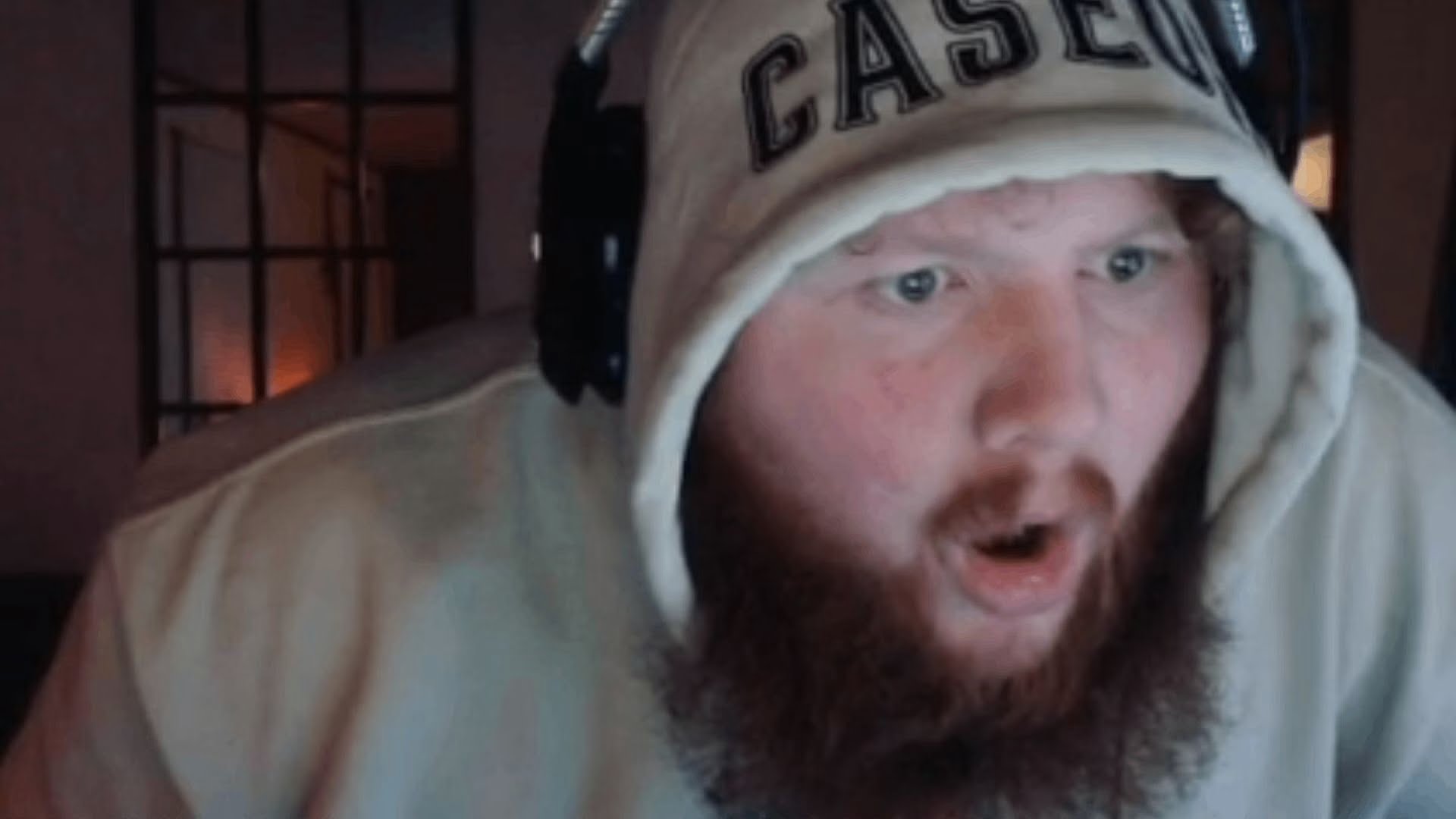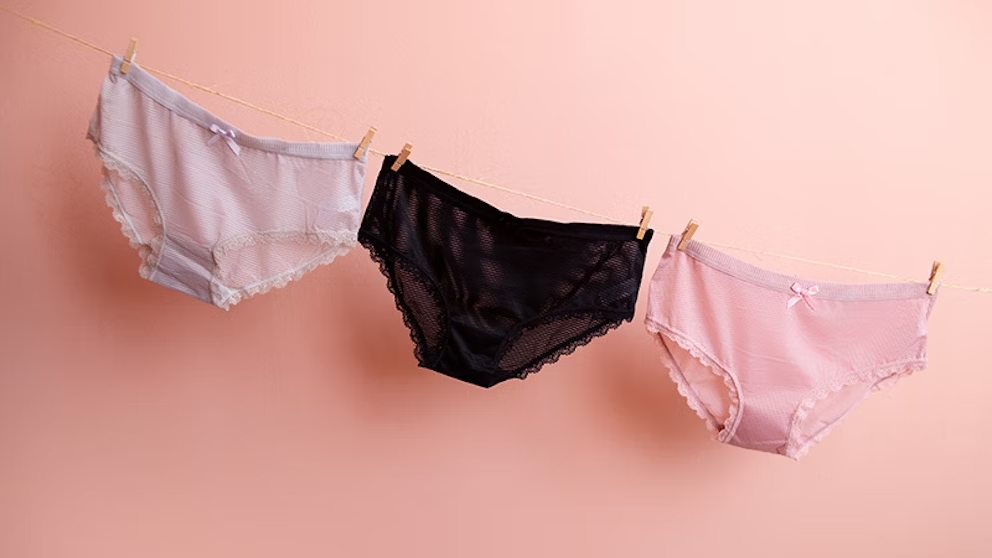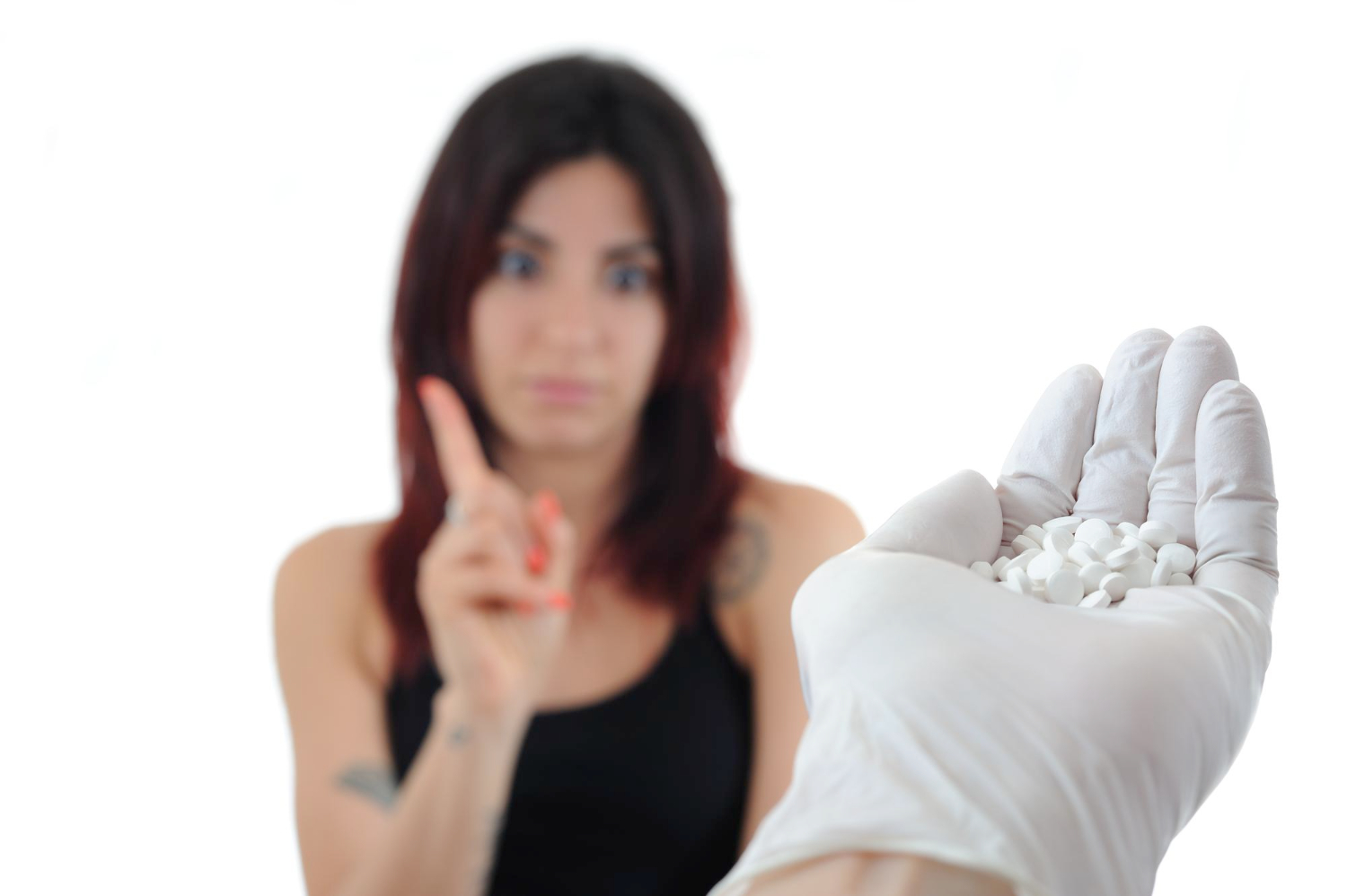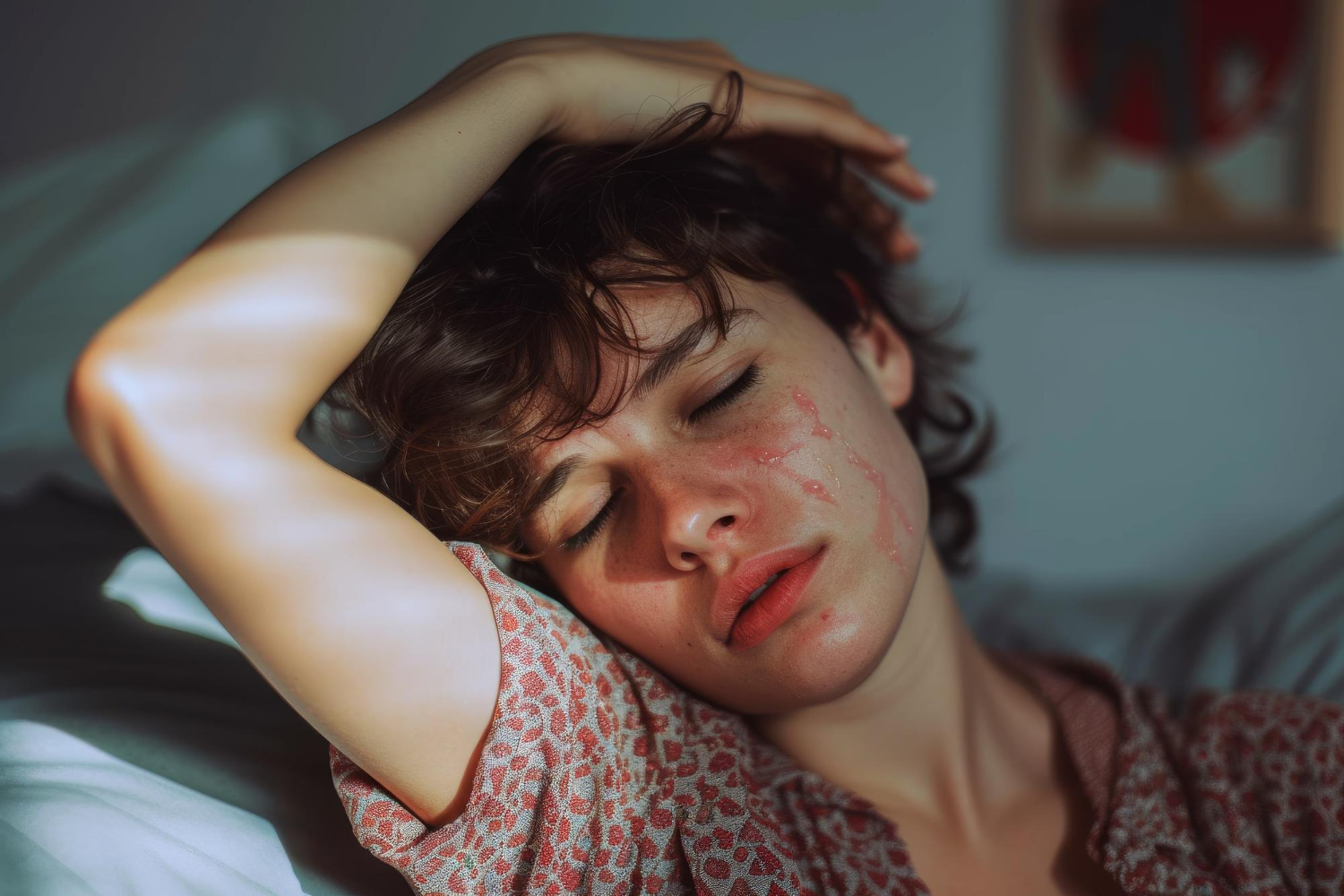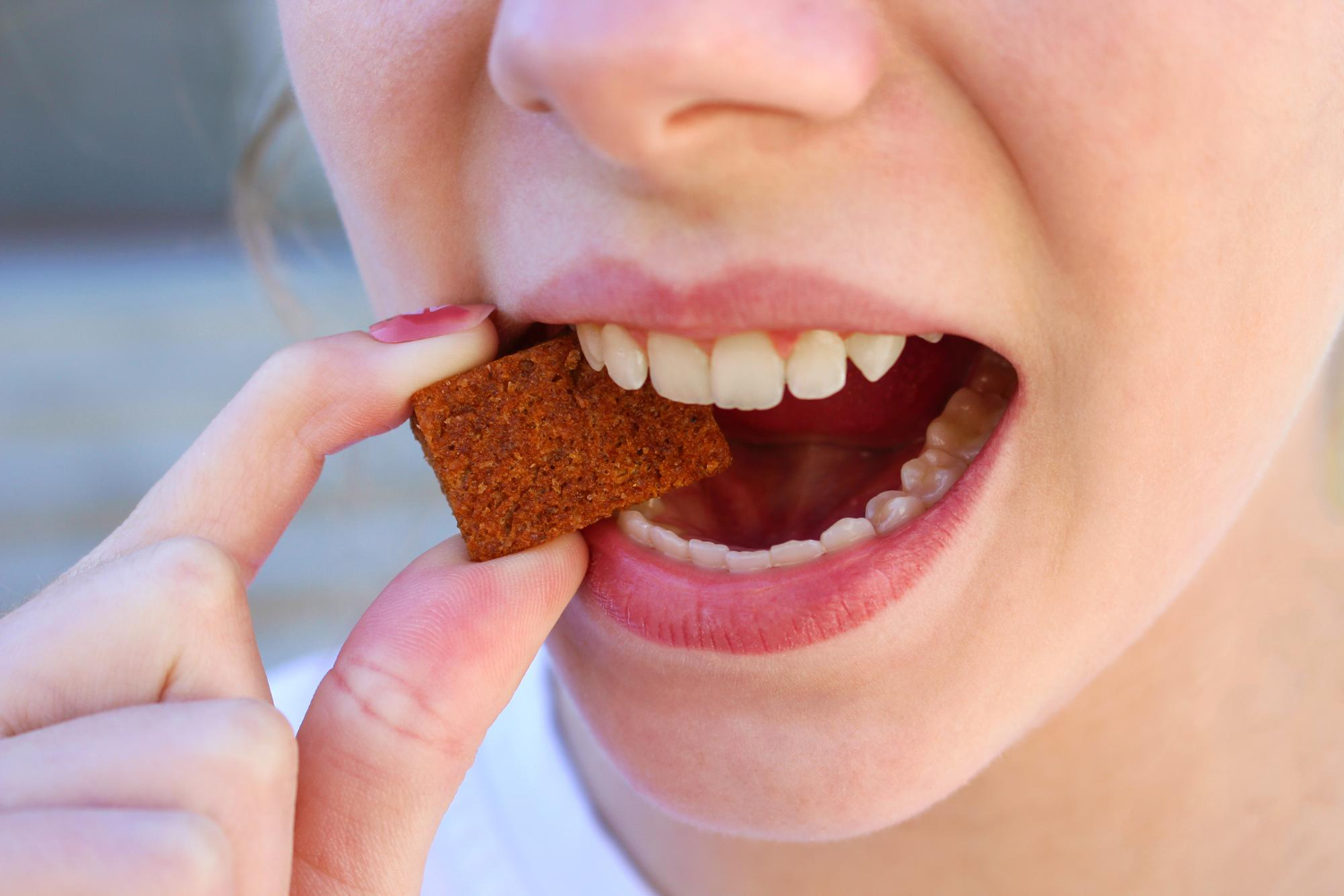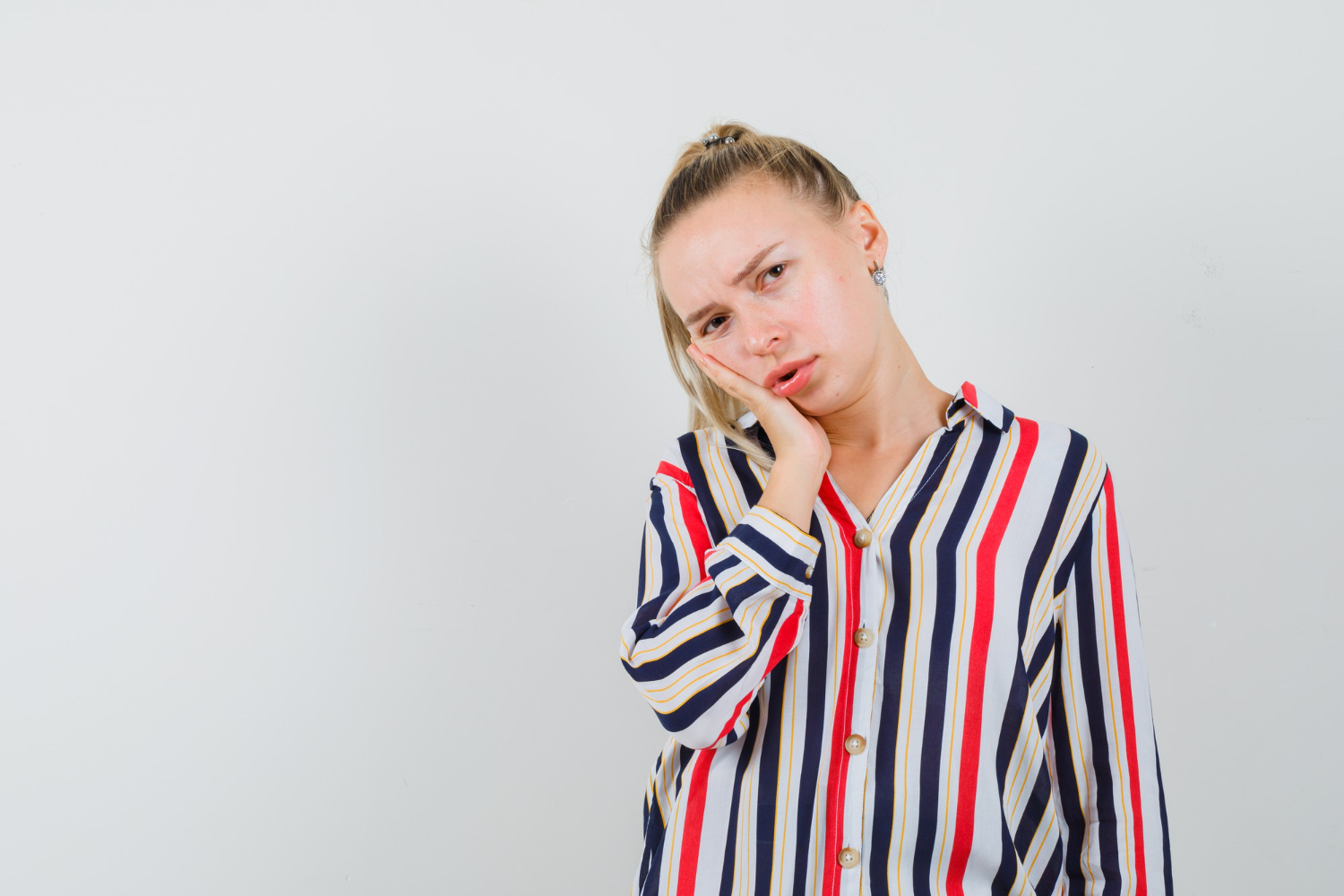Bed bugs—just the thought of them can send shivers down your spine. These tiny, nocturnal pests have been a growing nuisance in households worldwide.
They not only cause itchy bites and sleepless nights but also pose significant health risks, including allergic reactions and secondary infections from scratching.
Finding an effective solution to eliminate bed bugs is crucial for maintaining a healthy living environment. Enter Lysol, a popular household cleaner. But can Lysol actually kill bed bugs? Let’s find out.
Table of Contents
ToggleWhat Are Bed Bugs?
Description and Life Cycle
Bed bugs are small, reddish-brown insects that feed on the blood of humans and animals. They are typically about the size of an apple seed and can live for several months without feeding.
Bed bugs go through several life stages, starting from eggs to nymphs and finally to adults. Each stage requires a blood meal to progress to the next.
Common Signs of Bed Bug Infestation
Detecting bed bugs early can save you a lot of trouble. Common signs of an infestation include small, rust-colored stains on your bedding, tiny white eggs or shed skins, and itchy red bites usually appearing in a line or cluster on your skin. A sweet, musty odor may also be present in heavily infested areas.
How Bed Bugs Spread and Where They Hide
Bed bugs are excellent hitchhikers. They can easily spread through luggage, clothing, and used furniture. Once inside your home, they tend to hide in cracks and crevices near where people sleep, such as mattress seams, headboards, and even electrical outlets.
Can Lysol Kill Bed Bugs?
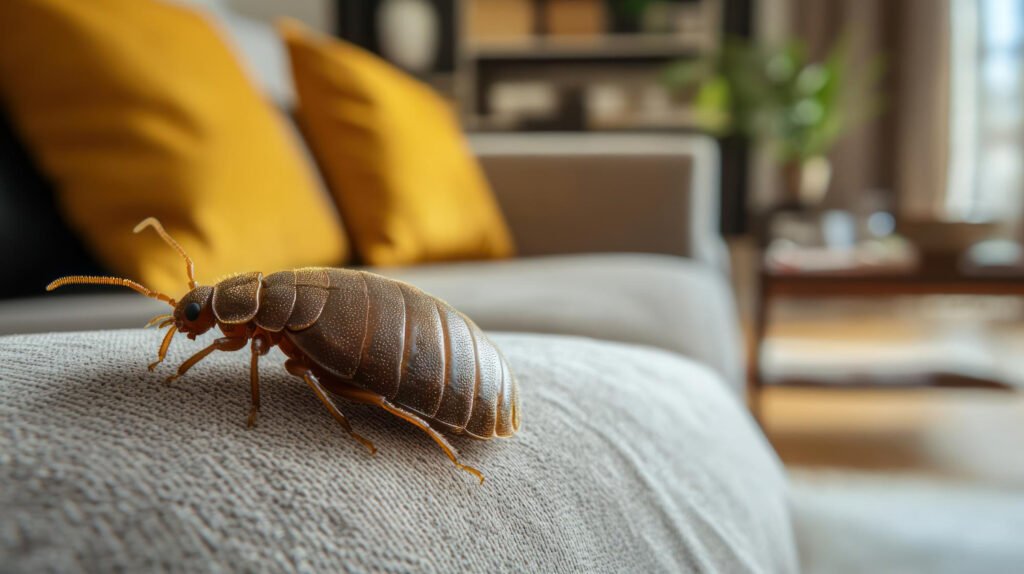
The Ingredients in Lysol and Their Effects
Lysol is a well-known disinfectant that contains active ingredients like ethanol, isopropyl alcohol, and benzalkonium chloride. These compounds are effective at killing bacteria, viruses, and some fungi. But what about bed bugs?
How These Ingredients Interact with Bed Bugs
While the alcohol in Lysol can kill bed bugs on contact, it’s not strong enough to penetrate their exoskeletons or eliminate their eggs. Benzalkonium chloride, a common antiseptic, can disrupt cell membranes but is less effective on bed bugs compared to more potent chemical treatments.
Effectiveness of Lysol on Bed Bugs
Laboratory Studies and Anecdotal Evidence
There is limited scientific research on the effectiveness of Lysol against bed bugs. Most evidence is anecdotal, with mixed reviews on its success. Some users report temporary relief, while others find it ineffective for long-term control.
Pros and Cons of Using Lysol for Bed Bug Treatment
Pros:
- Readily available and inexpensive
- Can kill bed bugs on contact
Cons:
- Not effective against bed bug eggs
- Limited residual effect
- May require repeated applications
Comparison with Other Common Bed Bug Treatments
Compared to specialized bed bug sprays and professional treatments, Lysol falls short in effectiveness. Chemical treatments like pyrethroids and desiccant dusts offer more comprehensive control, targeting both adult bed bugs and their eggs.
How to Use Lysol to Treat Bed Bugs
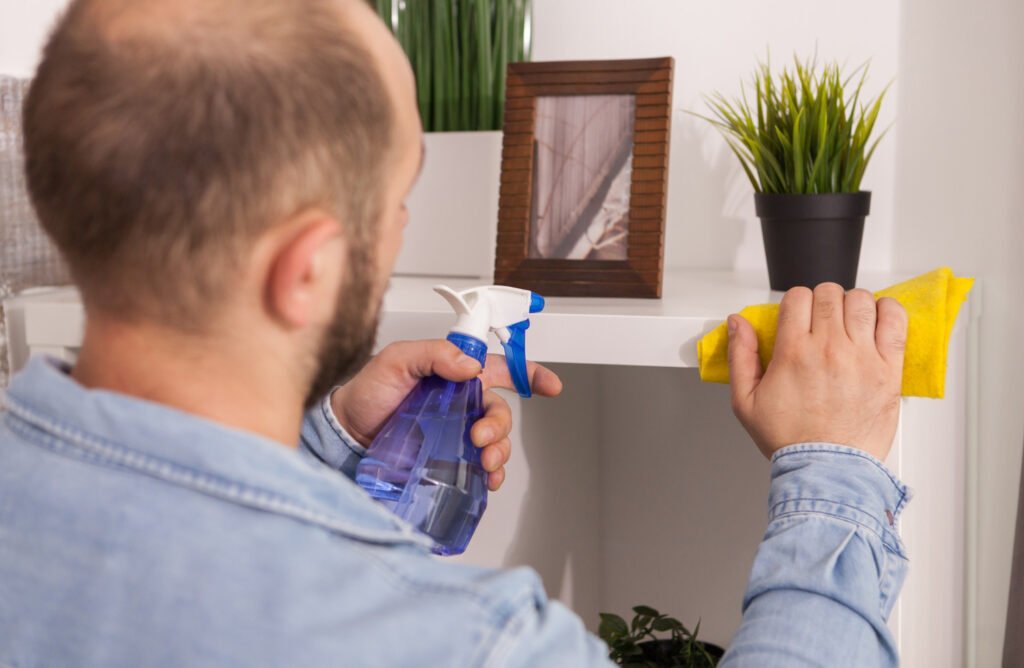
Preparation Before Spraying Lysol
Before you start using Lysol, prepare the infested area. Strip your bed of all linens and wash them in hot water. Vacuum the mattress, box spring, and surrounding areas thoroughly.
Safety Precautions to Take When Using Lysol
Lysol is a chemical disinfectant, so it’s essential to take safety precautions. Wear gloves and a mask to avoid inhalation and skin contact. Ensure the room is well-ventilated during and after application.
Application Methods
Direct Spraying on Bed Bugs and Their Hiding Spots
Spray Lysol directly on visible bed bugs and their hiding spots, such as mattress seams, headboards, and baseboards. Be thorough, as missing even a few bugs can lead to reinfestation.
Using Lysol on Mattresses, Furniture, and Other Surfaces
Lightly spray Lysol on the surfaces of your mattress, furniture, and other infested areas. Avoid soaking these items, as excessive moisture can lead to mold growth.
Frequency and Duration of Lysol Application for Best Results
For best results, apply Lysol daily for at least a week. Continue to monitor the situation and reapply as necessary to ensure all bed bugs are eliminated.
Aftercare and Monitoring

Cleaning and Maintaining Treated Areas
After treating the affected areas, continue to vacuum regularly and wash bedding frequently. This helps remove any surviving bed bugs and their eggs.
Monitoring for Signs of Recurring Infestations
Keep an eye out for signs of recurring infestations, such as new bites or sightings of bed bugs. Early detection allows for prompt action, preventing a full-blown infestation.
Alternative Methods to Kill Bed Bugs
Chemical Treatments
Overview of Other Chemical Sprays and Treatments
Other chemical treatments include pyrethroids, desiccant dusts, and insect growth regulators. These treatments target bed bugs at various life stages, offering more comprehensive control than Lysol.
Safety and Effectiveness Comparison with Lysol
While chemical treatments may be more effective, they come with their own set of safety concerns. Always follow manufacturer instructions and consider hiring a professional for application.
Natural Remedies
Essential Oils, Diatomaceous Earth, and Other Natural Alternatives
Natural remedies like essential oils (tea tree oil, lavender oil) and diatomaceous earth can be effective against bed bugs. These alternatives are non-toxic and safe for use around pets and children.
Pros and Cons of Natural Treatments
Pros:
- Safe and non-toxic
- Can be used in combination with other treatments
Cons:
- Slower acting
- Requires repeated applications
Professional Pest Control Services
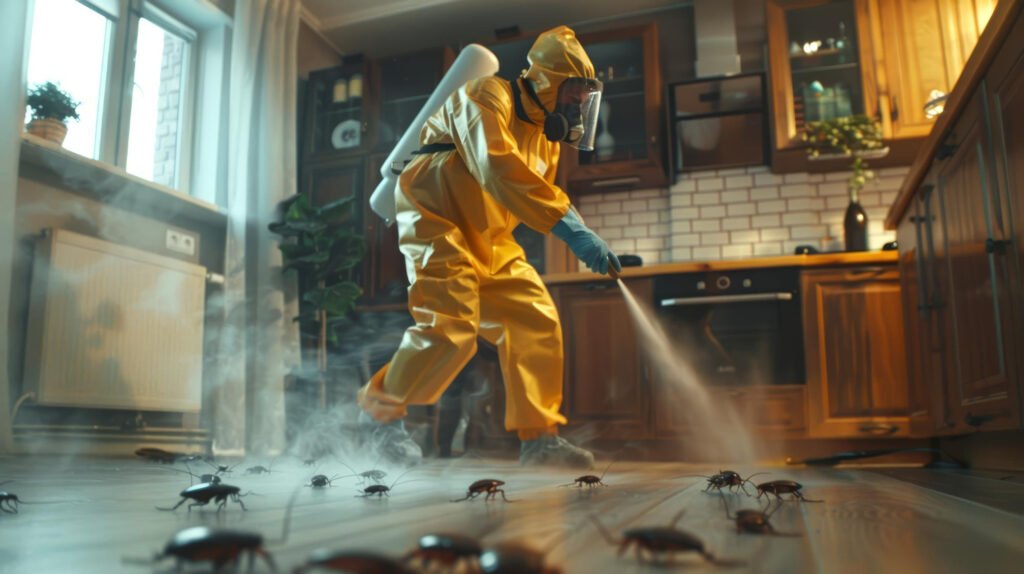
When to Consider Hiring a Professional
If DIY methods fail or the infestation is severe, it may be time to hire a professional pest control service. Professionals have access to more potent treatments and can offer a comprehensive approach.
What to Expect from Professional Pest Control Treatments
Expect a thorough inspection, multiple treatment visits, and follow-up checks. Professionals will also provide guidance on preventing future infestations.
Prevention Tips to Avoid Bed Bug Infestations
Regular Cleaning and Maintenance Habits
Regular vacuuming, washing bedding in hot water, and decluttering can help prevent bed bug infestations. Pay special attention to areas where bed bugs are likely to hide.
Tips for Travelers to Avoid Bringing Bed Bugs Home
When traveling, inspect hotel rooms for signs of bed bugs. Keep luggage off the floor and bed, and wash all travel items in hot water upon returning home.
Protective Measures for Bedding and Furniture
Use bed bug-proof mattress and pillow covers to protect against infestations. Regularly inspect and clean furniture to catch any signs of bed bugs early.
Conclusion
In conclusion, while Lysol can kill bed bugs on contact, it is not the most effective long-term solution. It can offer temporary relief but often requires repeated applications and additional treatments. For comprehensive bed bug control, consider combining Lysol with other methods like chemical treatments, natural remedies, and professional pest control services.
Maintaining a regular cleaning routine and taking preventive measures can help keep your home bed bug-free. If you’re dealing with a severe infestation, don’t hesitate to seek professional help. Effective bed bug control requires a multi-faceted approach, and with the right strategies, you can reclaim your home from these persistent pests.
FAQs
Can You Spray Lysol to Kill Bed Bugs?
Yes, you can spray Lysol directly on bed bugs to kill them on contact. However, it is not a long-term solution, as it does not effectively kill bed bug eggs or offer residual protection.
What Cleaner Kills Bed Bugs?
While Lysol can kill bed bugs on contact, other cleaners like rubbing alcohol and specialized bed bug sprays are more effective for long-term control.
Can I Spray My Bed with Lysol?
You can spray your bed with Lysol, but avoid soaking it. Ensure the mattress is completely dry before using it to prevent mold growth.
What Household Product Kills Bed Bugs Instantly?
Rubbing alcohol can kill bed bugs instantly on contact. However, it is flammable and should be used with caution.
Will Lysol Damage My Furniture or Fabrics?
Lysol may cause discoloration or damage to certain fabrics and surfaces. Always test on a small, inconspicuous area first.
How Long Does It Take for Lysol to Kill Bed Bugs?
Lysol kills bed bugs on contact, but multiple applications may be needed for thorough control.
Can Bed Bugs Become Resistant to Lysol?
There is no evidence to suggest that bed bugs can become resistant to Lysol. However, it is not the most effective long-term solution.
Is Lysol Safe to Use Around Pets and Children?
Lysol should be used with caution around pets and children. Ensure treated areas are well-ventilated and dry before allowing pets and children to return.
What Are the Signs That Bed Bugs Are Completely Eradicated?
Signs that bed bugs are eradicated include the absence of bites, sightings, and other signs of infestation for several weeks. Regular monitoring is essential to ensure they do not return.

